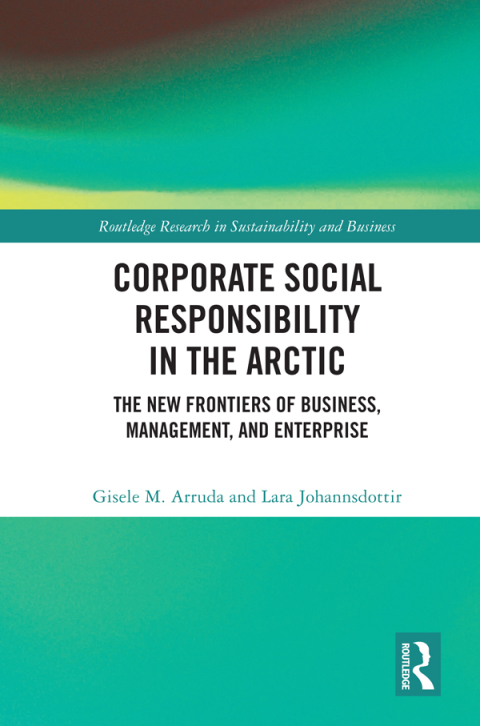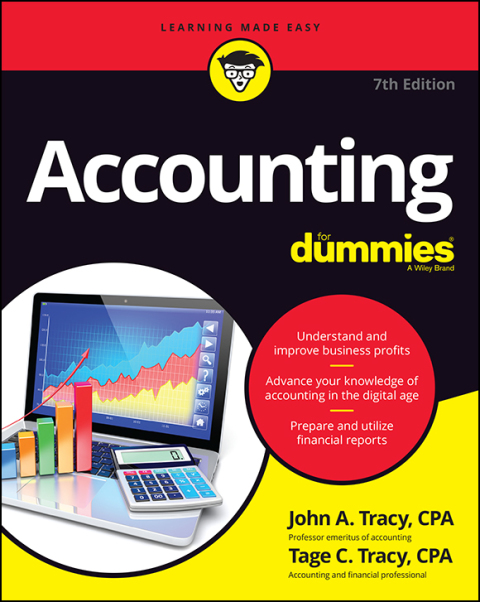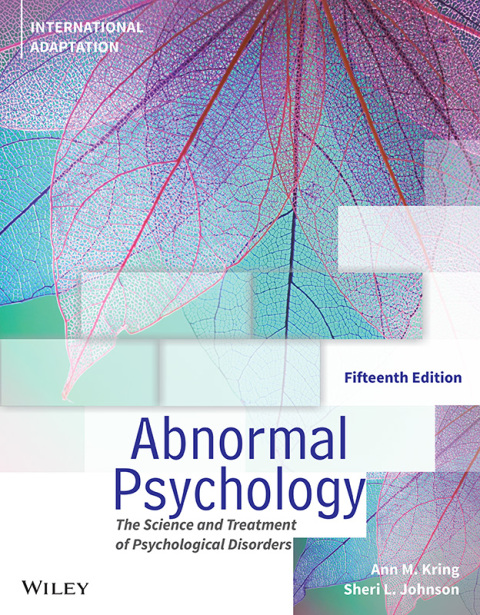Description
Efnisyfirlit
- Cover
- Half Title
- Series Information
- Title Page
- Copyright Page
- Table of Contents
- List of Figures
- List of Tables
- Acknowledgements
- 1 CSR and the new frontiers of business, management, and enterprise: The new CSR strategy in the Arctic
- Learning objectives
- Introduction
- Types of discussion and issues explored in Chapter 1
- Background: Remote versus urban Arctic areas
- The new CSR strategy in the Arctic
- Entrepreneurship and innovation in the Arctic (knowledge-intensive entrepreneurship)
- Further resources: The next chapters
- Case study: Arctic innovative entrepreneurs – the next generation
- Questions for discussion
- Chapter summary
- 2 Historical background: CSR timeline, concepts, frameworks, and theories
- Learning objectives
- Introduction
- Types of historical milestones, concepts, frameworks, and theories discussed in Chapter 2
- Background: Historical milestones in the CSR, sustainability, and Indigenous Peoples timeline
- CSR definitions and concepts
- CSR frameworks or models
- CSR theories
- Further resources
- Case study: Albatros Expeditions
- Questions for discussion
- Chapter summary
- References
- 3 Relevance of CSR in a world in transition: Contemporary trends
- Learning objectives
- Introduction
- Types of discussion and issues explored in Chapter 3
- Background: Climate-related concepts
- Climate change in the Arctic
- Arctic energy development, infrastructure, transportation, and energy utilization
- Adapting to change
- Arctic resilience
- The Paris Agreement
- The Sustainable Development Goals
- The Sendai Framework for Disaster Risk Reduction
- CSR and the role of businesses and financial institutions in the Arctic
- Further resources
- Case study: Decline in investors’ interest in Arctic oil projects and the risk of stranded assets
- Questions for discussion
- Chapter summary
- References
- 4 The eight Arctic nations and their respective industries: Case studies
- Learning objectives
- Introduction
- Background: From theory to practice
- Canada
- The West Baffin Eskimo Co-operative: A case study from Canada
- Denmark – Greenland
- The Royal Greenland Group: A case study from Greenland
- Finland
- The Sustainable Mining Network: A case study from Finland
- Iceland
- Carbfix: A case study from Iceland
- Norway
- The Association of Arctic Expedition Cruise Operators: Case study from Norway
- Sweden
- Tentipi: A case study from Sweden
- The Russian Federation
- Novatek: A case study from Russia
- The United States
- The Red Dog mine: A case study from the United States
- Questions for discussion
- Further resources
- Chapter summary
- References
- 5 The role of business and stakeholders in the new CSR strategy in the Arctic
- Learning objectives
- Introduction
- Types of discussion and issues explored in Chapter 5
- Background: Stakeholder theory
- Role of business–stakeholder relationship in the new CSR strategy in the Arctic
- Role of stakeholders in the new CSR strategy in the Arctic
- Role of non-Arctic stakeholders in the new CSR strategy in the Arctic
- Role of the environment and non-human stakeholders in the new CSR strategy in the Arctic
- Arctic stakeholder theory versus contemporary stakeholder theory
- Arctic business principles and standards concerning the new CSR strategy in the Arctic
- Further resources
- Case study
- Questions for discussion
- Chapter summary
- References
- 6 CSR and Arctic communities
- Learning objectives
- Introduction
- Background: CSR in the Arctic multicultural context
- CSR, extractive industry and Arctic communities: Energy systems, mining, agroecosystems
- Energy systems
- Energy transition and socio-technical systems
- Global application and emerging cases of socio-technical systems
- Mining in the Arctic
- Agroecosystems and food security
- Inequality as a result of drivers of change
- Questions for discussion
- Chapter summary
- References
- 7 CSR and practical solutions in complex environmental contexts
- Learning objectives
- Introduction
- Types of discussion and issues explored in Chapter 7
- Background: Environment and sustainability
- Emerging local and global risks
- Ethics and emerging technologies: Responsible Research and Innovation
- Circular economy
- Smart specialization
- Bioeconomy: Green transition, principles, and criteria
- Blue economy
- Further resources
- Case study
- The concept of bio-refineries
- Questions for discussion
- Chapter summary
- References
- 8 CSR and the new trends in business practices and sustainable enterprise
- Learning objectives
- Introduction
- Types of discussion and issues explored in Chapter 8
- Arctic responsible supply chains
- The influence of the OECD Guidelines for Multinational Enterprises
- UN Global Compact and CSR Compass: A coherent framework and tool for sustainable business
- UN Declaration on the Rights of Indigenous Peoples
- European Union (EU) strategy for CSR as part of the EU’s 2030 strategy on smart, sustainable, and inclusive growth and the new integrated EU policy for the Arctic
- Arctic Investment Protocol
- Circular economy as a model of Arctic development
- Further resources
- Questions for discussion
- Chapter summary
- References
- 9 CSR auditing and reporting
- Learning objectives
- Introduction
- Types of principles, guidelines, and standards addressed in Chapter 9
- Background: From voluntary to mandatory CSR reporting
- The UN Global Compact
- The Global Reporting Initiative
- The OECD Guidelines for Multinational Enterprises
- Sustainability Accounting Standards Board
- The International Integrated Reporting Council
- AccountAbility
- Social Accountability 8000
- Nasdaq ESG Reporting Guide
- International Labour Organization conventions
- The UN Declaration on the Rights of Indigenous Peoples
- The UN Principles on Businesses and Human Rights
- The International Organization for Standardization Standards
- Carbon Disclosure Project
- Principles for Responsible Investment
- The Arctic Investment Protocol
- Further resources
- Case study: The Danish CSR Compass
- Questions for discussion
- Chapter summary
- References
- 10 CSR education for the 21st century
- Learning objectives
- Introduction
- Types of discussion and issues explored in Chapter 10
- Background: Relationship between CSR, sustainability, and education
- Adaptive education for the business context and ethical issues: Global and local perspective
- Curriculum and pedagogical changes to promote socially responsible interactions
- How to form global citizens capable of tackling the challenges of the 21st century
- The future of CSR and the SDGs in the Arctic
- Further resources
- Case study
- Questions for discussion
- Chapter summary
- References
- Index







Reviews
There are no reviews yet.